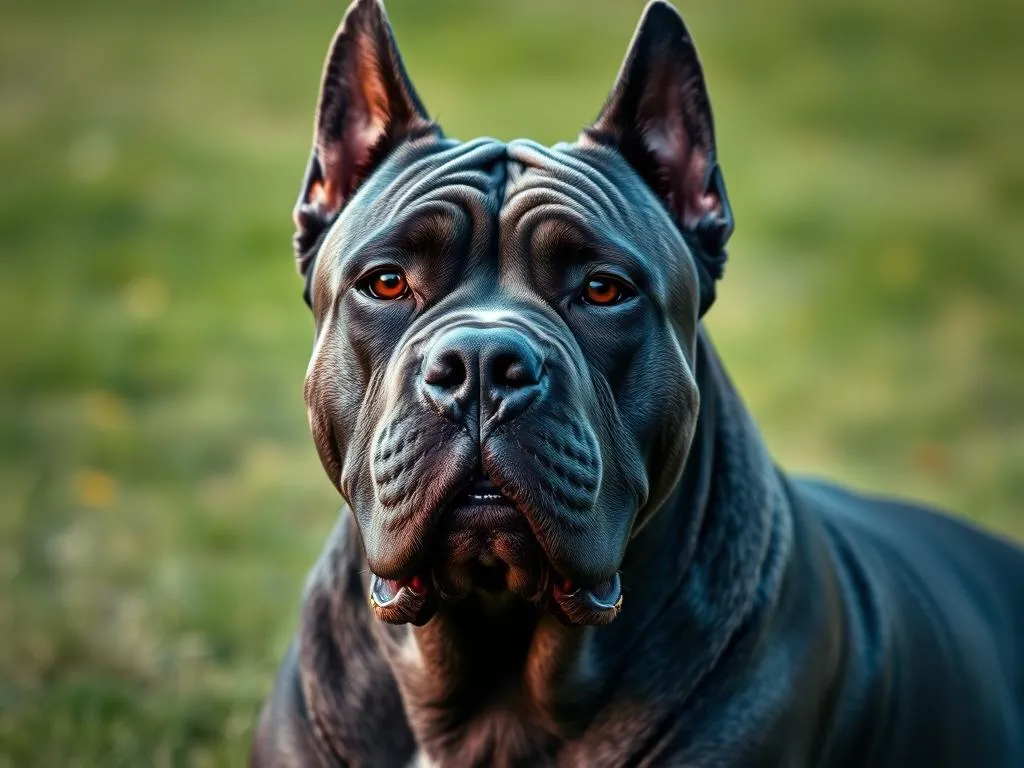
The Cane Corso is a majestic breed known for its impressive stature and loyal nature. This breed has captured the hearts of dog enthusiasts worldwide, and among them, the term blue blood Cane Corso often arises, denoting a lineage of exceptional quality and pedigree. Understanding this breed’s characteristics, history, and care requirements can significantly enhance the experience of potential owners.
What is a Cane Corso?
Origin and History
The Cane Corso has its roots in ancient Italy, where it was bred as a versatile working dog. Its ancestors date back to the Roman Empire, where they were used for hunting, guarding, and even as war dogs. The breed’s name translates to “bodyguard dog” in Latin, which reflects its historical role as a protector. Over the centuries, the Cane Corso evolved, adapting to the needs of its owners and the culture surrounding it, becoming a cherished companion in Italian households.
Physical Characteristics
The Cane Corso is a large and powerful breed, typically weighing between 90 to 120 pounds. Males are generally larger than females, with males standing around 24 to 28 inches tall at the shoulder, while females range from 23 to 26 inches. Their coat is short and dense, coming in various colors, including black, fawn, gray, and brindle. Distinctive features include a broad head, strong jaw, and muscular build, which contribute to their imposing presence.
Understanding the “Blue Blood” Cane Corso
Definition of Blue Blood
In dog breeding, the term blue blood refers to a lineage that is considered superior due to its purebred status and notable ancestry. For the Cane Corso, this means that the dog comes from a long line of esteemed dogs, often with champions in its pedigree. This lineage is vital for maintaining the breed’s integrity, ensuring that traits such as temperament, health, and physical characteristics are preserved.
Characteristics of Blue Blood Cane Corso
A blue blood Cane Corso typically exhibits the highest standards of the breed. These dogs are often characterized by:
- Physical Traits: Enhanced muscularity, a more defined head structure, and a coat that aligns with breed standards.
- Temperament: A well-balanced demeanor with a natural inclination toward loyalty and protectiveness.
- Health Considerations: While they may have fewer genetic disorders due to careful breeding practices, it is essential to remain vigilant about common health issues.
In comparison with standard Cane Corsos, blue blood variants may display slight variations in appearance and behavior, often due to selective breeding for specific traits.
Temperament and Behavior
General Temperament of Cane Corso
The Cane Corso is often described as confident, intelligent, and protective. They are known to be loyal companions and can form strong bonds with their families. However, they require proper socialization and training from an early age to ensure they develop into well-adjusted adults. Without appropriate exposure to different environments, people, and other animals, they may become overly protective or aloof.
Temperament of Blue Blood Cane Corso
Blue blood Cane Corsos may exhibit temperament traits that align closely with their pedigree. Due to the rigorous selection process that prioritizes behavioral traits, these dogs often possess a more stable and sociable nature. They may be more adaptable to different environments and situations, making them excellent companions for families and individuals alike.
Training and Socialization
Importance of Early Training
Early training is crucial for any Cane Corso, especially for those with blue blood lineage. These dogs are intelligent and eager to please, which makes them relatively easy to train. However, firm, consistent training methods are necessary to curb their natural protective instincts.
Socialization Tips
To ensure a well-behaved Cane Corso, it’s essential to expose them to various environments, sounds, people, and pets. Here are some effective strategies for socializing a Cane Corso:
- Puppy Classes: Enroll in obedience classes to help with early socialization.
- Controlled Playdates: Introduce your puppy to other dogs in a controlled setting.
- Public Outings: Take your Cane Corso to parks, pet-friendly stores, and busy areas to expose them to different stimuli.
Health and Care
Common Health Issues in Cane Corsos
While the Cane Corso is generally a robust breed, they can be prone to certain health issues, including:
- Hip Dysplasia: A common problem in larger breeds, hip dysplasia can lead to arthritis and mobility issues.
- Bloat: This life-threatening condition involves the stomach filling with gas and twisting.
- Cardiac Issues: Certain heart conditions can be more prevalent in this breed.
Regular veterinary check-ups and preventive care can help mitigate these health risks.
Care Requirements
To ensure the well-being of your Cane Corso, it’s essential to adhere to specific care requirements:
- Nutrition: A high-quality, balanced diet is crucial for maintaining health and energy levels. Consult a veterinarian to determine the best food for your dog’s age, size, and activity level.
- Exercise: Daily exercise is vital to prevent obesity and to keep your Cane Corso mentally stimulated. Aim for at least an hour of physical activity each day.
- Grooming: The short coat of the Cane Corso requires minimal grooming, but regular brushing can help reduce shedding and keep the coat healthy.
Living with a Cane Corso
Ideal Living Conditions
The Cane Corso thrives in environments where it has ample space to roam and play. Ideally, they should have access to a secure yard to burn off energy and engage in playtime. This breed is particularly well-suited for families with experience in handling large dogs, as they require consistent training and leadership.
Benefits of Owning a Cane Corso
Owning a Cane Corso can bring numerous emotional and physical benefits:
- Companionship: Their loyal nature makes them excellent companions, providing comfort and affection.
- Protection: Known for their guarding instincts, they offer a sense of security to their families.
- Active Lifestyle: Their energy levels encourage owners to maintain an active lifestyle, promoting physical health for both the dog and the owner.
Conclusion
The Cane Corso, particularly those of blue blood lineage, represents a unique blend of strength, loyalty, and intelligence. Understanding the breed’s characteristics, history, and care requirements is essential for anyone considering bringing one into their home.
Choosing the right breed is crucial, and the Cane Corso offers a rewarding experience for those willing to invest time and effort into training and socialization. Whether you’re looking for a devoted companion or a protective family member, the blue blood Cane Corso may be the perfect fit.
As you explore your options, consider the responsibility that comes with dog ownership. If you’re drawn to the Cane Corso, take time to research reputable breeders or adoption options. Engaging with local Cane Corso clubs and communities can also provide valuable insights and support.









